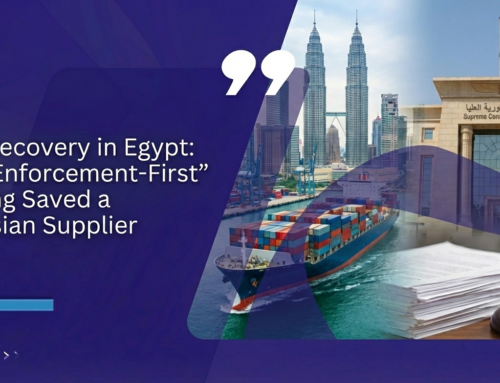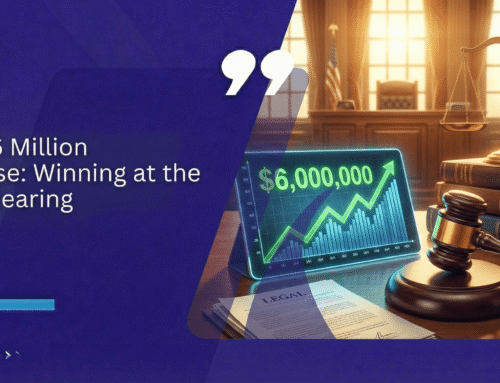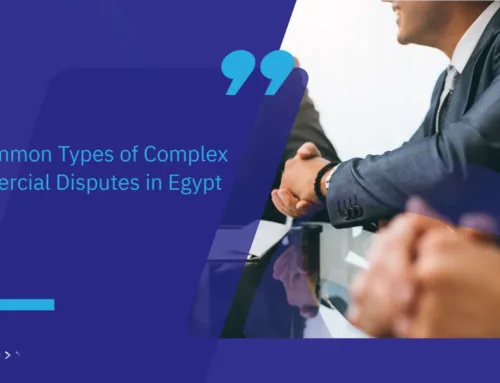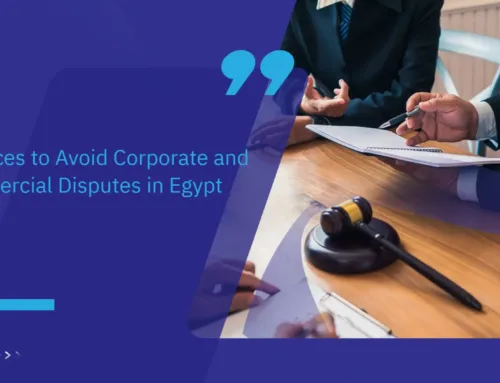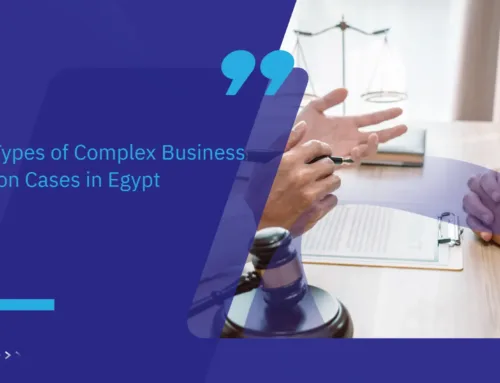Egypt stands at a unique crossroads where ancient legal traditions meet modern business demands. So that, Civil and Commercial Litigation in Egypt has become a crucial pillar for maintaining trust, enforcing contracts, and securing business continuity. Whether you’re entering new partnerships, facing disputes or protecting your commercial interests, a clear understanding of the Egyptian Litigation process can mean the difference between costly setbacks and strategic victories.
Understanding the Civil and Commercial Litigation in Egypt
Civil and Commercial Litigation refers to the legal processes used to resolve disputes between individuals, businesses or organizations that are not criminal in nature.
In Egypt, the legal system is a civil law system based primarily on Napoleonic codes, with influences from Islamic (Sharia) law and customary practices. This includes:
- Civil and Commercial Code: The Egyptian Civil Code (1948) governs obligations, contracts and civil relationships.
- Commercial Code: The Commercial Code (1999) addresses matters involving merchants, commercial contracts and corporate transactions.
- Civil and Commercial Procedure Law No. 13 of 1968: This law regulates Litigation procedures in both civil and Commercial Disputes.
Common civil and commercial Litigation cases include:
- Contract disputes.
- Shareholder and partnership disputes.
- Property and intellectual property disputes.
- Landlord/tenant disagreements.
- Franchise issues.
- Personal injury claims.
- Business torts (like fraud or misrepresentation).
Civil and commercial Litigation in Egypt operates within a structured legal framework, but the choice of court, procedural strategy and legal representation are crucial.
For commercial matters, especially cross-border or high-value disputes, arbitration or Economic Court s are typically more efficient than traditional civil Litigation.
The Impact of Civil and Commercial Litigation on Business Operations in Egypt
Civil and commercial Litigation in Egypt can significantly affect a business operationally, financially and reputationally. Below is a structured overview of the main impacts:
-
Financial Impact
Litigation imposes direct costs such as legal fees, court expenses and potential compensation payments. Indirectly, it affects cash flow and diverts resources away from core operations, making it harder for businesses to maintain profitability during disputes.
-
Regulatory and Compliance Risks
Litigation involving regulatory bodies may lead to audits, fines or loss of licenses. Businesses under legal scrutiny may face stricter oversight, affecting their ability to operate freely or bid on government contracts.
-
Corporate Reputation and Trust
Being involved in lawsuits can damage a company’s image, especially in competitive markets. Investors, clients and partners may view Litigation as a sign of instability, reducing trust and affecting long-term business relationships.
-
Business Relationships and Contracts
Legal disputes with partners or clients often strain or break business relationships. Frequent contract disputes signal poor legal planning and may lead to contract cancellations, delayed payments or loss of suppliers and customers.
-
Sector-Specific Effects
Litigation affects sectors differently. For example, real estate developers may face project delays, while banks struggle with debt recovery. Startups and SMEs are especially vulnerable, as legal costs can be overwhelming.
When to Hire a Civil and Commercial Litigation Attorney in Egypt?
Hiring a civil and commercial Litigation attorney in Egypt is essential when a legal dispute arises or is likely to occur. Below are key situations when hiring a Litigation attorney is advisable:
-
Upon Receiving a Legal Notice or Court Summons
If you’ve been served with a legal notice, summons or statement of claim, immediate legal representation is critical. Egyptian court procedures are formal and time-sensitive, missing deadlines can result in default judgments against you.
-
Before Filing a Lawsuit
If you’re planning to sue someone over a civil or commercial matter, such as breach of contract, unpaid debts or property disputes, a Litigation attorney can advise you on jurisdiction, evidence and chances of success and handle filing procedures correctly.
-
During Contract Negotiations (High Risk Deals)
In complex or high-value contracts, particularly in sectors like construction, real estate or international trade, having a Litigation attorney review and draft clauses (especially dispute resolution and jurisdiction) can prevent future legal issues.
-
If Facing Enforcement or Collection Issues
When a judgment needs enforcement or you’re trying to recover debt or property, legal representation ensures the proper use of Egypt’s enforcement courts. An attorney can navigate bureaucratic procedures efficiently and prevent delays.
-
In Cross-Border or Foreign-Investment Disputes
If your case involves a foreign party or international elements, such as Foreign Investment s or arbitration, you’ll need a lawyer familiar with international law, treaty obligations and Egypt’s position under the New York Convention.
-
When Mediation or Arbitration Fails
If an out-of-court settlement, mediation or arbitration fails or becomes non-binding, a Litigation attorney can step in to take the matter to civil or Economic Court s while preserving your prior negotiation efforts as part of the legal case.
-
To Appeal or Challenge a Judgment
If you lose a case and want to appeal or file a cassation, an attorney is essential. The appellate and cassation processes in Egypt are highly technical and require strong legal argumentation based on procedural or legal errors.
The Role of a Litigation Lawyer in Civil and Commercial Litigation in Egypt
In Egypt’s civil and commercial legal system, a specialized Litigation lawyer plays a crucial role in guiding individuals and businesses through complex disputes.
Below are the key roles of a Litigation lawyer in this context:
- Case Assessment and Legal Advice: Evaluate the dispute, explain your rights and obligations and recommend the best legal strategy.
- Document Preparation: Draft and submit all necessary court documents like claims, defenses and evidence, ensuring compliance with procedural requirements.
- Court Representation: Advocate on your behalf in hearings, presenting arguments, questioning witnesses and defending your position effectively.
- Negotiation and Settlement: Engage with opposing parties to explore settlements, mediation or arbitration to resolve disputes without lengthy trials.
- Appeals and Cassation: Handle appeals by preparing legal grounds and representing you in higher courts to challenge or uphold decisions.
- Judgment Enforcement: Assist with enforcing court judgments, ensuring decisions are implemented and rights are protected.
- Risk Management: Advise on legal risks and potential outcomes, helping you make informed decisions throughout the Litigation process.
In the heart of the Middle East and North Africa, Civil and Commercial Litigation in Egypt plays a vital role in protecting business interests and enforcing rights in an increasingly competitive market.
With the right legal guidance, what might seem like a courtroom challenge can become a powerful opportunity to assert rights, settle disputes, and move forward stronger.
At “Consortio Law Firm”, we understand the complexities of civil and commercial Litigation in Egypt and the challenges individuals and businesses face when dealing with legal disputes.
Our expert legal team of top Litigation lawyers are committed to delivering practical solutions, minimizing legal risks and achieving the best possible outcome through every step of the legal process.
Don’t wait and Take the first step toward resolving your legal dispute with confidence.
Contact our dedicated Litigation team Today to schedule your consultation via:
Phone number: 002-01028806061.
Via: WhatsApp.
Email: Info@consortiolawfirm.com.
FAQ’s
-
What is the difference between civil and commercial law in Egypt?
- Civil law in Egypt governs personal and private rights, such as obligations, property, and family matters and is primarily based on the Egyptian Civil Code.
- Commercial law, on the other hand, deals specifically with business and trade activities, including commercial contracts, companies, banking and bankruptcy and is governed by the Egyptian Commercial Code.
-
What types of disputes are considered commercial?
Examples include disputes over commercial contracts, partnerships, agency agreements, banking and insolvency.
-
What types of cases fall under civil Litigation?
Common cases include breach of contract, real estate disputes, personal injury and family law issues.
-
Are commercial cases handled differently from civil cases?
Yes. Commercial courts or specific Economic Court s may handle these cases, and procedures can be faster and more technical.
-
What are the main stages of a lawsuit in Egypt?
Filing the claim, notification, defense submission, hearings, judgment and possible appeal.
-
Are judgments in Egypt enforceable?
Yes. Once final, judgments can be enforced through the enforcement court unless stayed by appeal.

